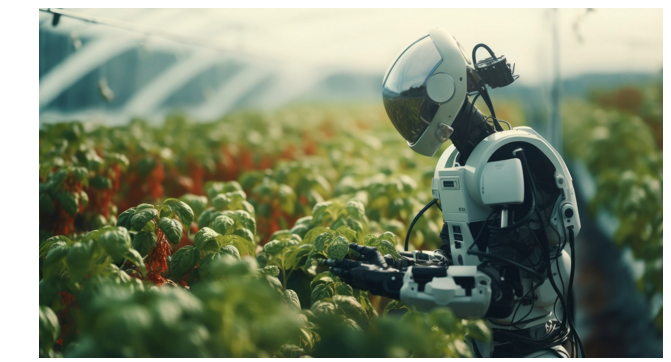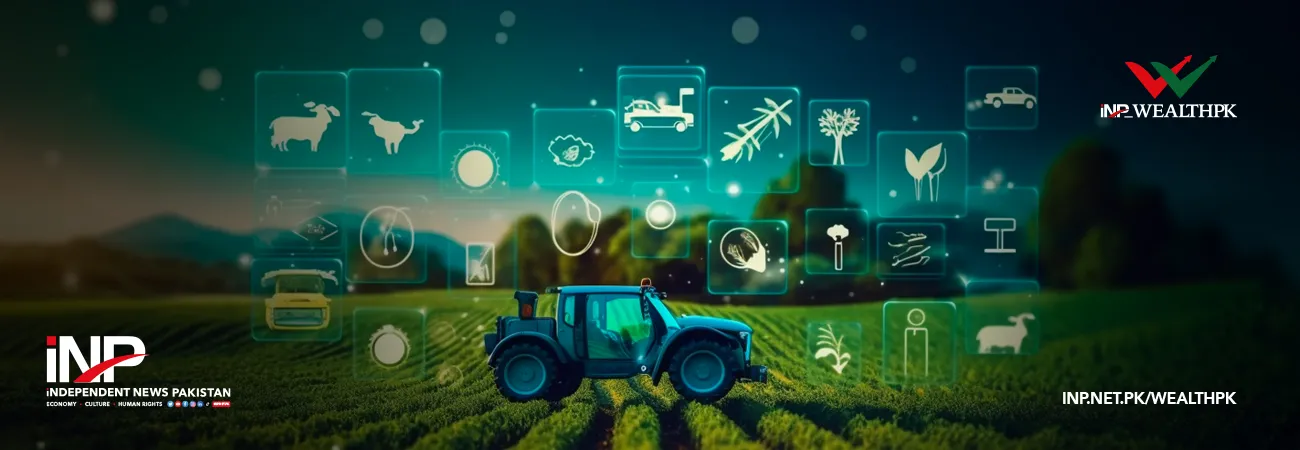INP-WealthPk
Arooj Zulfiqar
As Pakistan grapples with the challenges of feeding a growing population in the face of dwindling resources, the integration of Artificial Intelligence (AI) in agriculture is not just an option but a necessity.

“Pakistan’s agriculture sector, contributing around 24% to the national GDP and employing nearly 40% of the labour force, is the backbone of the economy. However, traditional farming methods and inconsistent resource management have led to suboptimal yields and inefficiencies,” said M Akhtar, an agriculture expert at MNS-University of Agriculture, Multan. “Therefore, the integration of AI technologies could be the key to reversing this trend,” he stressed. “AI-driven solutions can revolutionise how we manage agricultural inputs, from precision farming to predictive analytics,” said Akhtar. “By utilising AI, farmers can make data-driven decisions, ensuring optimal use of water, fertilizers and pesticides, ultimately leading to higher crop yields and reduced waste.” He said: “One of the key areas where AI has a significant impact is predictive analytics. Through AI-driven algorithms, vast amounts of data, including weather patterns, soil conditions, historical crop performance, and market trends are analysed.
This data-driven approach enables farmers to make informed decisions about planting, irrigating, applying fertilizers, and protecting crops from pests and diseases.” “Precision farming, one of the most promising applications of AI, enables farmers to monitor and manage their fields with unprecedented accuracy. Drones equipped with AI-powered sensors can gather real-time data on soil health, moisture levels, and crop conditions. This data is then analysed to provide actionable insights, allowing farmers to apply the right amount of inputs at the right time,” points out Dr Iqbal, a senior scientific officer at the National Agricultural Research Centre. “Traditional farming methods often involve a one-size-fits-all approach, which can lead to overuse of inputs and environmental degradation,” he said. “AI-driven precision farming, on the other hand, allows for site-specific management, which is both economically and environmentally sustainable.”
Despite the clear benefits, the adoption of AI in Pakistan’s agriculture sector faces significant hurdles. The lack of digital literacy among farmers, limited access to technology, and the high cost of AI solutions are major barriers. Additionally, there is a need for robust infrastructure and supportive government policies to facilitate the widespread adoption of AI technologies. The government must play a proactive role in promoting AI in agriculture. This includes investing in digital infrastructure, training farmers, and offering subsidies or incentives for adopting AI technologies. According to a report by Agriculture Information Bank, AI can assist in confronting one of humanity’s greatest upcoming challenges of feeding an additional two billion people by 2050 as UN projections record only 4% of extra land will be available for cultivation.
Credit: INP-WealthPk




